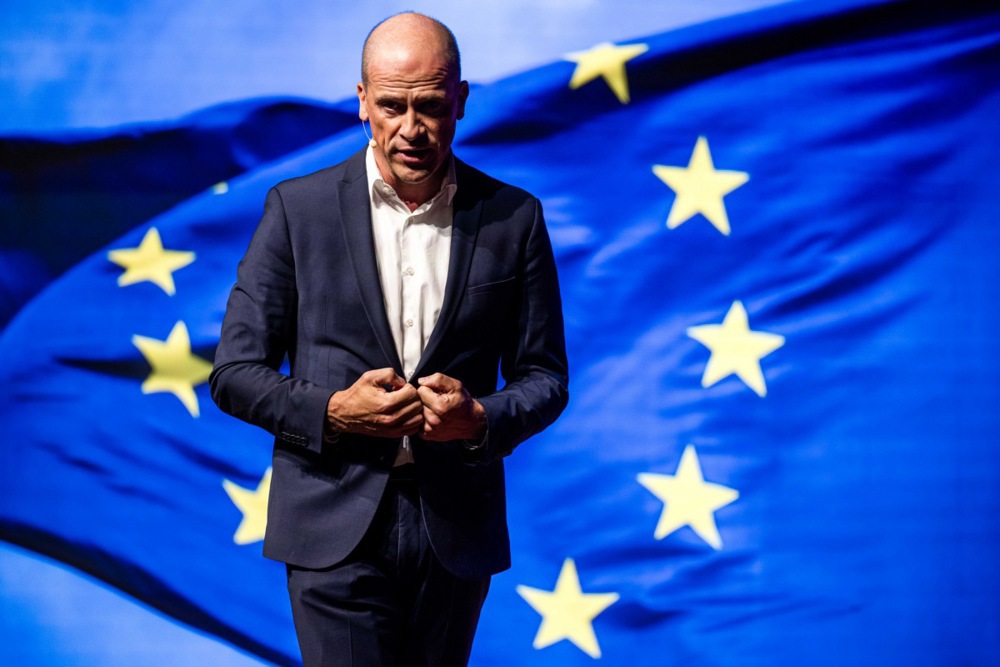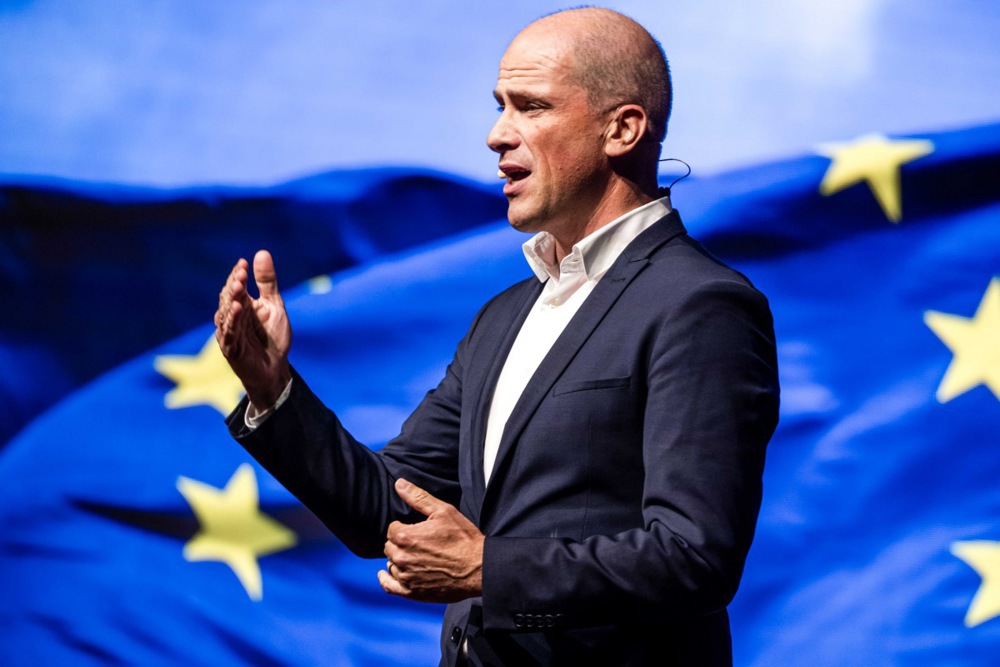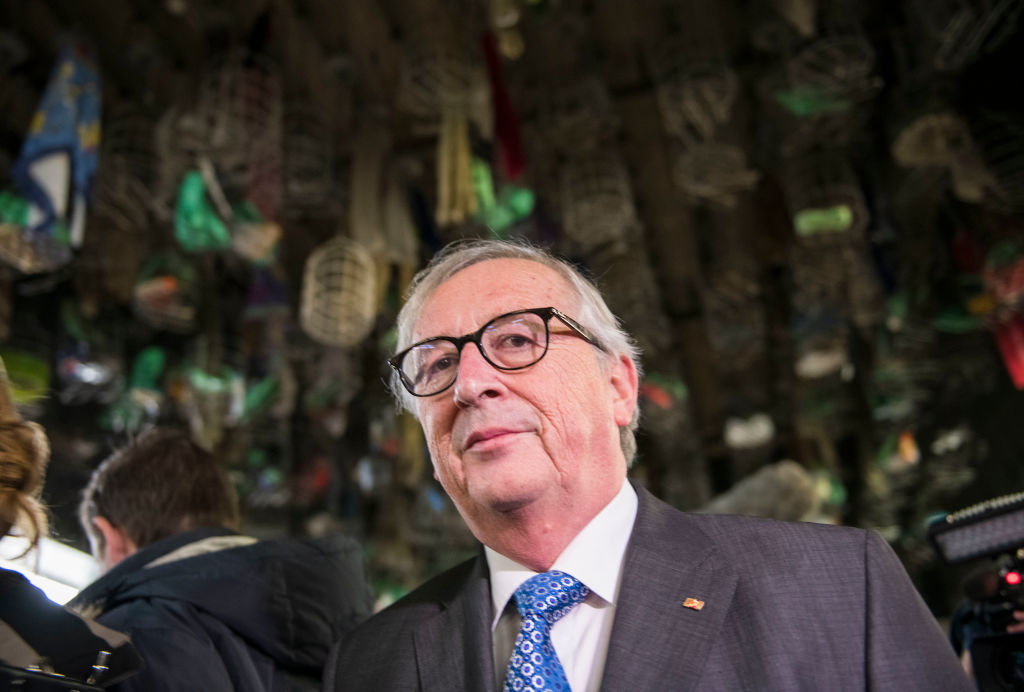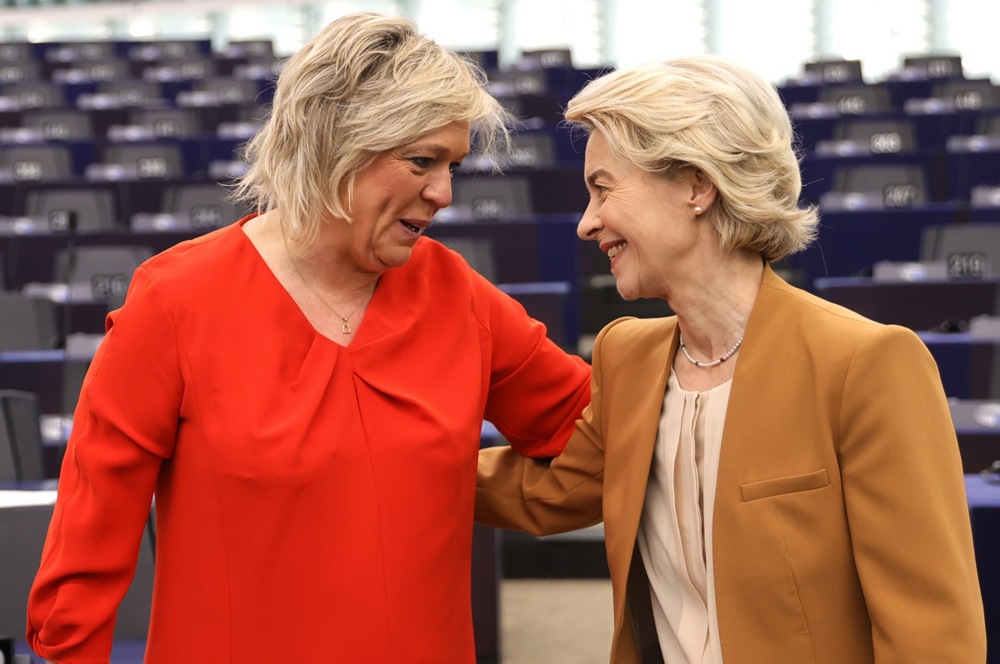A former European Commissioner has sparked concern after taking a senior role at a major Chinese retailer SHEIN — an online retailer facing accusations of compelling workers into 75-hour weeks, using cotton produced by forced-labour Uyghur workers, and producing clothes that Canadian officials banned after finding elevated levels of lead in the fabric.
Despite all this, Günther Oettinger, who formerly served as the European Commissioner’s digital economy tsar, is reported to have become a consultant for the international fashion retailer known for its hyper-cheap pricing at €5 to €10 an item.
His role has been described as designed to “help SHEIN navigate the European political climate,” according to a spokesperson for the online clothing giant.
The former Christian Democrat also confirmed his new role, though admitted he had little to no experience using the company’s service.
“I have a mandate as a freelance consultant — narrowly limited to cybersecurity, data protection and geopolitics,” Oettinger told German news outlet Welt on August 16.
“SHEIN is a world leader. I myself have never bought there — but I know endless young people who use it as their preferred online retailer.”
SHEIN is a prominent Chinese fast-fashion retailer founded in 2008. It operates primarily as an online platform, utilising a digital-first, on-demand model that allows it to rapidly produce and sell thousands of new designs almost daily.
The brand is known for its low prices, with items often costing as little as €5 to €10, making it particularly appealing to younger consumers, especially the so-called Generation Z, which refers to individuals born from the mid-to-late 1990s through the early 2010.
It is the market leader in the US and is said to be aiming for a stock exchange listing in Europe. To achieve that goal, it wants to forge connections in the EU political world and has been courting experts in Brussels.
EU Green Deal architect takes top job with Dutch gas firm — without EC permission. https://t.co/75yYQjnQpX
— Brussels Signal (@brusselssignal) July 1, 2024
Oettinger is not known for his keen fashion sense, he has considerable experience within the Brussels bubble. The German served as a Commissioner from 2010 to 2019.
He started off his time in the body as the bloc’s energy tsar, before becoming commissioner for Digital Economy and Society, and then finally as commissioner for Budget and Human Resources.
Since his departure from the European Commission, he founded the company Oettinger Consult. Working with businesses and associations, his speciality is advising customers on European regulations, EU trade policy and tariffs and sanctions.
He is no stranger to controversy. According to data gathered by Transparency International, Oettinger has appeared 18 times on the EU lobby transparency register and under former commission president Jean-Claude Juncker, he was the most active in meeting with lobbyists.
In 2016 he made controversial remarks about Chinese people during a speech in Hamburg. He referred to them as “slant-eyes” (schlitzaugen) and made other derogatory comments about their appearance and culture.
He also mocked Chinese officials by saying they had “their hair combed from left to right with shoe polish.” These comments were widely criticised as racist and inappropriate, leading to significant backlash.
Oettinger later apologised for the remarks.
Detractors have meanwhile accused SHEIN of fuelling pollution but the firm claimed its on-demand production was responsible for less waste than its competitors. Another, more specific issue, is that the EU has classified it as a Large Internet Platform, obliging it to comply with the bloc’s DSA regulations.
In Canada, the company was forced to stop sales of what were deemed “questionable” products with elevated levels of chemicals — including lead — that experts found concerning.
Scientists found that a jacket for toddlers contained almost 20 times the amount of lead that Health Canada said was safe for children. A purse, also purchased from Shein, had more than five times the threshold.
In China, the firm is associated with labour-law violations, for example, forcing workers to work 75-hour weeks.
Cotton from Xinjiang, where Uyghurs are reportedly persecuted and put into forced labour, is also allegedly used by SHEIN.
It is also accused of ripping off and copying other designers and brands.
In June 2020, the company’s app was banned in India due to privacy concerns.
China is under observation in Europe and is currently subject to tariffs on subsidised electric vehicles, Welt noted.
It is the second time in a short period the commission has been confronted with a former commissioner taking a high-paying lobbying job in the private sector. Earlier Diederik Samsom, one of the architects of the European Green Deal, raised eyebrows after joining the board of Gasunie, a Dutch gas company as chairman in June this year.
Samsom accepted the role without the required permission of the EC and only received that on August 8.
Daniel Freund, co-chair of the European Parliament’s Intergroup on Anti-Corruption, told Brussels Signal it was “another shocking revolving-door case.”
In 2022, former commissioner for Digital Affairs Neelie Kroes found herself in a storm when she turned out to have lobbied for transport firm Uber before the required “cooling off period” had expired.
It was later reported that the European Commission had hushed up an attempt by Kroes to secure an exemption to ethics rules that would have allowed her to lobby on behalf of Uber.
When Kroes asked for this permission, the commission’s internal ethics committee advised the body to deny it on the grounds that Kroes would not be upholding the “honesty and discretion” that the EU required of her as a former commissioner.
After receiving the committee’s advice, its secretary-general then told Kroes she ought to retract her request.
China as a whole has meanwhile morphed into a topic of concern in Brussels, with Eurocrats now frequently accusing the Communist state of “dumping” products into the single market.
Werner Hoyer, former head of EIB, under EU investigation for alleged corruption. https://t.co/oL0QMqzqAY
— Brussels Signal (@brusselssignal) June 25, 2024





